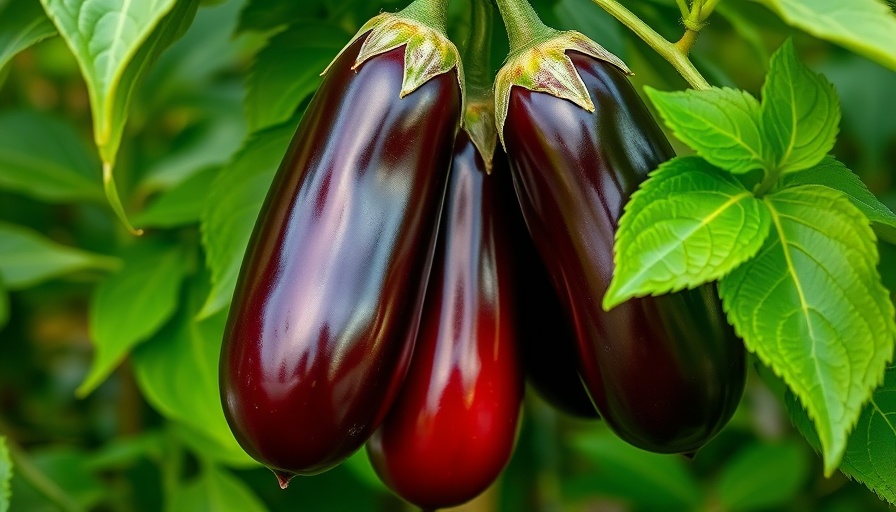
Unleash the Potential of Eggplant with Companion Plants
Eggplant, or Solanum melongena, is not just a versatile ingredient in the kitchen; it's also a robust plant capable of thriving when paired with the right companions in the garden. Companion planting is a sustainable gardening practice that enhances growth, reduces pests, and creates a harmonious ecosystem. By strategically placing certain plants alongside your eggplants, you can significantly boost their health and productivity.
Why Companion Planting Matters
When you think about gardening, the goal often extends beyond mere yields. It's about building a flourishing garden that minimizes the need for synthetic chemicals while promoting biodiversity. Companion plants can attract beneficial insects such as pollinators and pest predators, reducing your reliance on organic pesticides. For instance, herbs like basil and dill not only add culinary value but also create an environment where pests like aphids stay at bay.
Top Companion Plants for Eggplant
Here are some trusted companions that can help your eggplants flourish:
- Basil: This beloved herb doesn’t just elevate flavors; it also repels common pests. Planting basil near eggplants can improve their flavor while attracting pollinators.
- Borage: Known for its stunning blue flowers, borage is an excellent companion, helping to enhance soil nutrients and attract beneficial insects.
- Bush Beans: Leguminous plants like bush beans can fix nitrogen in the soil, promoting healthier growth in their nearby companions.
- Marigolds: These flowers are not only visually appealing but also effective at deterring pests such as nematodes, making them a perfect addition alongside eggplants.
- Garlic: A natural pest repellant, garlic minimizes threats from harmful insects while providing culinary benefits as well.
Three Companions to Avoid
While many plants pair beautifully with eggplants, some do not. It is crucial to avoid planting them near:
- Potatoes: Both belong to the nightshade family and may compete for the same nutrients, leading to a less productive garden.
- Tomatoes: Another nightshade, tomatoes can create the perfect environment for pests that will attack both plants.
- Peppers: Like eggplants and tomatoes, they also share vulnerabilities to similar diseases, making them a poor choice for neighboring plants.
Enhancing Your Garden with Companion Strategies
Implementing companion planting is not just about choosing the right neighbors for your eggplants; it’s also about creating a vibrant, diverse ecosystem. Here are some actionable insights to maximize your gardening efforts:
- Rotate Crops: Practicing crop rotation ensures that pests and diseases do not become established in your garden soil.
- Use Organic Mulching: Organic materials such as straw or leaves not only suppress weeds but also help retain moisture and enhance soil quality.
- Know Your Plant Needs: Different plants have different water and nutrient requirements. Group companions with similar needs for easier maintenance.
Future Trends in Companion Planting
As sustainable practices gain traction in mainstream gardening, companion planting will likely continue to evolve. Gardeners are increasingly seeking out plant diversity, leading to more innovative combinations that promote ecosystem health. As climate conditions shift, understanding plant relationships will be vital in adapting gardening strategies for healthier yields.
Conclusion: Embrace Companion Planting in Your Garden
Engaging with companion planting opens up avenues for creating healthier, more sustainable gardens. By pairing eggplants with beneficial companions, you can not only bolster your garden’s synergy but also foster a landscape that thrives on biodiversity. Remember to keep experimenting and observing how different plants interact with each other; the garden's natural balance lies in these intricate relationships.
 Add Row
Add Row  Add
Add 




Write A Comment